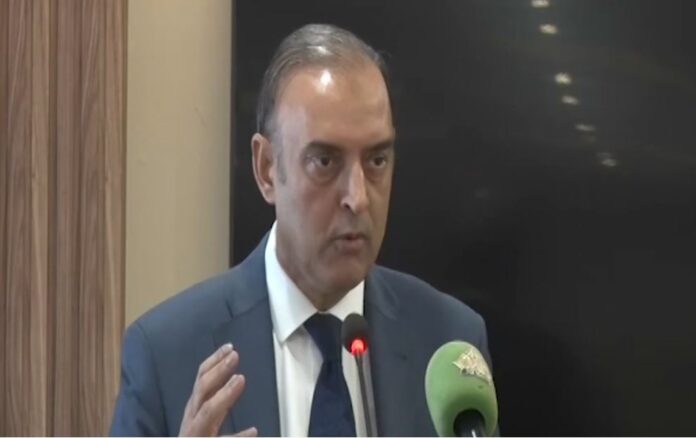KARACHI: State Bank of Pakistan (SBP) Governor Jameel Ahmad has called for a decisive shift from short-term stabilisation measures toward a globally competitive, export-driven growth model, warning that Pakistan cannot break its recurring boom-bust cycle without restructuring its economic strategy.
Speaking at the Pakistan Business Council’s Dialogue on the Economy, the governor said Pakistan has historically swung between periods of growth and painful stabilisation, but the current phase offers a real opportunity for long-term transformation — provided policymakers maintain continuity and the private sector adapts to global standards.
Ahmad said the present stabilisation cycle differs from the past because monetary and fiscal policies are now more coordinated and forward-looking. He noted that the SBP’s enhanced forecasting capacity allows decisions based on eight-quarter projections rather than short-term indicators. Inflation, he said, has eased in line with expectations and is projected to remain within the 5–7% target band over the medium term.
A key element of improved stability, according to the governor, is the strengthening of external buffers without relying on debt-driven inflows. Since 2022, Pakistan’s external debt-to-GDP ratio has fallen from 31% to 26%, while SBP’s foreign exchange reserves have risen from $2.9 billion to about $14.5 billion. He added that reserve growth reflects strategic FX purchases and reduced forward liabilities rather than excessive borrowing.
Ahmad said sustainable growth will remain out of reach unless policymaking shifts from short-lived consumption-led spurts toward a long-term vision centred on productivity and socioeconomic development. He highlighted the government’s progress in maintaining primary fiscal surpluses over the past three years and pointed to ongoing structural reforms — including efforts to raise the tax-to-GDP ratio, broaden documentation, and lower energy costs through sector reforms.
He added that the SBP continues to address gaps in financial intermediation and promote financial inclusion to support this reform trajectory.
Looking ahead, the governor warned that Pakistan’s historic growth range of 3–4% is insufficient for a population exceeding 250 million. He urged businesses to embrace global competitiveness by integrating into international value chains, modernising production, and leveraging new opportunities emerging from the US, China, and Middle Eastern economies. He also pointed to digitalisation, the green transition and global supply-chain shifts as areas where adaptive firms can benefit.
Ahmad encouraged the private sector to diversify financing sources through domestic and international capital markets, adopt advanced digital tools, and document supply chains to improve productivity and resilience.
“We cannot expect different results by doing more of the same,” he said in closing. “The stability we have achieved must now serve as the foundation for long-term prosperity. Only by moving together — the government, the SBP, and the private sector — can we secure sustained and inclusive growth.”




